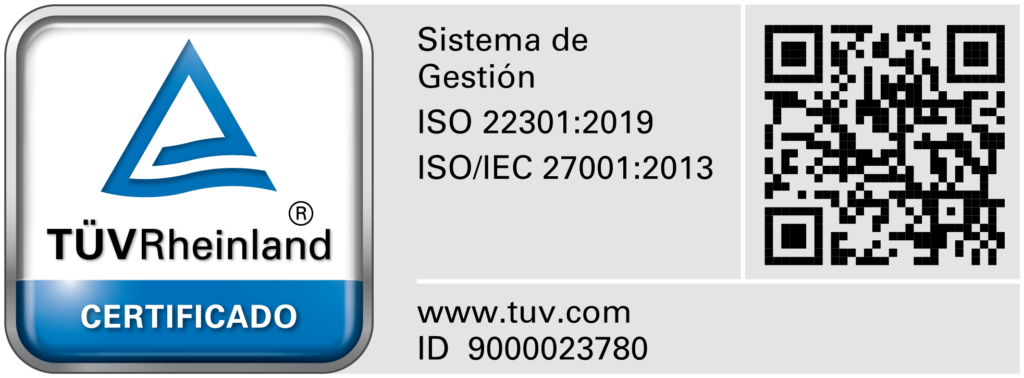You have just moved to Belgium and would like some advice before your arrival? Discover in a few key points the country of fried mussels and beer before moving there.
What are the advantages of living in Belgium?
Despite an often rainy climate, Belgium is a country renowned for its hospitality and good living, ranked 18th out of 157 countries where people are happiest. Whether you are staying in the capital Brussels or elsewhere, you will find happiness here. With a rich and global culture, Belgium is an ideal country to live in. Don’t forget that 3 languages are spoken in Belgium: French, Dutch and German (only in the far east of the country).
Opportunities to work
Belgium has an active labour market, particularly in Brussels where there are many job opportunities. As the base of many European institutions, it is a major centre for employment in many sectors. In addition, there is a predominantly international dynamic, which makes it relatively easy to mix cultures, if only in terms of language.
You should know that there is no minimum wage common to all sectors, but only minimum incomes fixed by the various collective labour agreements. The legal maximum number of hours worked per day is 8 hours and 39 hours per week. If you work more, these hours are considered overtime and must be paid accordingly. You will also get 20 days holiday per year as a worker, or 4 weeks for an employee. There are also 10 additional public holidays per year.
Most of the jobs to be filled are in fields such as banking or insurance, IT, retail, service (hotels or restaurants) or health care. To find job offers that match your profile, here are some websites for you:
If you wish, you can also submit your CV to one of the public employment service agencies such as Actiris (Brussels), Forem (Wallonia) or VDAB (Flanders).
Health insurance for all
When arriving in a new country, the issue of health and local insurance is always a concern. After all, being healthy and being able to be treated at reasonable costs is essential for a peaceful life. You will be pleased to know that Belgium has a very efficient health care system that allows 99% of its residents to have access to public health care.
All residents in Belgium are obliged to subscribe to health insurance, which covers part or all of your care. These funds come from the various social contributions of employees (employee contributions) and employers (employer contributions). If you already have a job when you arrive, you will often be covered by your employer’s health insurance, unless you are declared a resident. If you have not yet found a job, you will need to have taken out insurance in your home country, enabling you to obtain a residence permit. However, this service will not cover you if you are living in Belgium as an unemployed non-resident.
Once you are settled and registered, you will need to register with the Belgian social security system. To do this, you will need certain documents:
- A photocopy of your identity papers
- A copy of your Belgian employment contract
- The completed H012 form
- Your bank account number
In addition, you will also de advised to subscribe to a Belgian mutual insurance company in order to get even more coverage. These covers will reimburse between 50% and 75% of your costs. Note also that any child under 18 years of age will automatically be covered by the health insurance.
If this coverage is not sufficient, you can turn to private health insurance. Thanks to Moneytrans’ collaboration AXA, we now cover everything that is important in your life. Visit one of our branches or meet us on our website to activate your Smile Account and benefit from our various insurance plans for free according to your needs. It will cover repatriations, death and accident total disability.
What are the conditions for living in Belgium?
EU citizens
If you are a national of one of the European Union countries, you will not need a visa to enter Belgium. You will still need to carry a valid identity document with you during your stay. You will also need to register with the local authority, indicating your place of residence within 10 days of your arrival if you are staying in Belgium for more than 90 days. You will then receive a national number and will have to provide a number of documents to obtain a registration certificate.
Non-EU citizens
Short-stay visa
To stay in Belgium, if you are not an EU national, you will need to meet a few conditions to ensure a safe stay.
If your stay is less than three months, you can apply for a Schengen visa. This allows you a single entry into the territory within 180 days of the date of issue of the visa. You will need to provide a number of documents including :
- Your valid passport
- Your application form
- Your health insurance
- The visa fee paid
- The reason for your trip
In general, a Schengen visa costs 90 euros for adults and 45 euros for children between 6 and 12 years of age. (except for students or children under 6 years old who benefit from a free rate). Make an appointment at your nearest consulate/embassy, give them your complete file, make your application and you will receive a decision within 15-60 days.
Long-stay visa
First of all, if you want to stay in Belgium for more than 90 days, you will need a residence permit. You can apply for this from your home country. You will need to apply for a D visa or long-stay visa at the Belgian embassy or consulate in your country.
Then, when you arrive, you will have to apply to the local authority of your place of residence within eight days. After studying your file, the authorities in question will give you a residence permit, often granted for a limited period of time. This is commonly known as Carte A.
Between 35 and 40 days before its expiry date, you will have to apply for a renewal by going to the same administration that previously processed your application. To support your application, it is recommended that you attach documents proving that you have made efforts to integrate into Belgian society. This can be organised integration courses, or simply proof that you have been actively working since your arrival.
When the administration makes its decision, you may be able to obtain a B card, which will allow you to stay in the country for an unlimited period of time.
There are other options when it comes to settling in Belgium:
- You can also apply for a permit to work legally in the country. This will act as a residence permit.
- Another reason may be family reunification, where you join a family member with legal status in Belgium. After a certain period of stay, you can then apply for permanent residence.
- Exceptional circumstances may also constitute accepted cases, such as asylum seekers. It should be noted that this status is only granted if the person meets the criteria of article 1 of the Geneva Convention.
What is the budget for living in Belgium?
Living in Belgium can be cheaper than in other European countries but it still has a cost. Overall, a single person can live well on a budget of just under 1000 euros per month. This will allow you to cover your monthly expenses (food, housing, bills, transportation etc.). Of course, if you have children or a spouse, the budget can quickly increase.
To optimize your finances, we recommend that you first manage your budget by establishing fixed amounts each month for each category. For example, this month you spend 15% of your budget on food, 10% on bills, 25% on housing, 10% on savings, etc. Adapt this to your needs according to your personal situation and, by respecting it, you will see that your budget will be much easier to manage.
How can an expat live in Belgium?
Belgium is a very popular destination for expatriates, with a large community in the whole country. So if you are an expatriate and want to move to Belgium, you will find many people like you.
Indeed, Belgium is known to be an attractive pole for people from all over the world, especially because of its dynamic and attractive job market, its quality of life, the cosmopolitan aspect of some cities, and the economy favorable to business development.
For an optimal move, you will have several things to do before you are completely settled:
- Find a place to live in the city where you will be staying. Here are the main sites where you will find your happiness:
- Direct debit of your electricity, gas, water and internet contracts.
- Open a current account. To do this, take advantage of our offers concerning the Smile Account, an online current account that saves you all the hassle of a regular bank! Benefit from our offer to get a free Mastercard, an app to track your financial transactions and an online account with competitive rates when it comes to money transfers. Smile Account, the account that cares about you !

- Take out different insurance policies depending on your needs and your professional or family situation. In Belgium, you have 3 pillars in the field of health which are the social security, the mutual insurance and the compulsory health insurance. Please note that these last two are automatically linked. If you subscribe to a mutual insurance company, you will directly obtain your right to the compulsory health insurance.
- Take care of all the administrative paperwork. Here is a list of things you will need to think about:
-
- Make your domiciliation in Belgium via the administration closest to you within 8 days after your installation. You will have to bring several documents (a lease proving that you have a place of residence, a work contract, proof of your salaries, identity documents concerning your children and, if you have one, the family booklet).
- Register your vehicle in Belgium and change your French license into a Belgian one.
- Check the dates of registration in the different schools if you have children to be educated.
You now have all the keys in hand to make your move a success!







